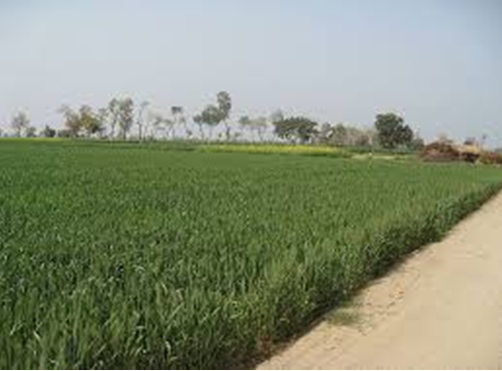INP-WealthPk
Muhammad Luqman
Agricultural experts call for greater adoption of cooperative and contract farming models to enhance productivity and profitability for small farmers in Pakistan, reports WealthPK.

The most recent agricultural census reveals that 97% of farmers own less than 12.5 acres of land, with the majority holding plots too small to afford modern equipment or invest in high-value crops. Of them, 26% hold less than one acre, and 61% own less than 2.5 acres. This indicates a clear trend of shrinking farm sizes, raising concerns about the sustainability and scale of Pakistan’s agricultural economy. The census also shows that only 16,958 landlords own more than 100 acres, accounting for 6.2% of the total agricultural land, with an average holding of 215 acres each.
“It is a very dangerous trend, as farmers with small landholdings cannot earn enough to meet their needs,” said Dr. Anjum Ali Buttar, former DG of Agriculture, Punjab. In an interview with WealthPK, he said cooperative or contract farming could help offset the effects of rapidly shrinking landholdings in Pakistan. In cooperative farming, Dr. Buttar explained, farmers pool their resources and efforts, working collectively toward common goals such as purchasing supplies, marketing produce, or accessing shared infrastructure.
“This approach allows small farmers to achieve economies of scale, reduce costs, and increase overall efficiency and profitability,” he said. He noted that China and several other countries had successfully adopted this model to increase per-acre yield. According to Dr. Buttar, the federal government — under the auspices of the Special Investment Facilitation Council (SIFC) — has proposed various laws, including the Agriculture Development Act, Contract Farming Act, and Corporatization of Small Farmers Act, to address these issues.
“Hopefully, the promulgation of these laws will help improve the situation in the agriculture sector,” said Dr. Buttar, who is also a consultant at the Punjab Agriculture Department.
However, he pointed out that the fragmentation of agricultural land into ever-smaller holdings cannot be stopped, as this is supported by inheritance laws.
“On the death of the family head, the land will inevitably be distributed among the heirs. The only solution is consolidation through the formation of cooperative societies,” Dr. Buttar said.
Agricultural economists agree that land fragmentation increases the cost of doing business, limiting small farmers’ ability to purchase modern machinery and adopt advanced farming practices.
“As a farm size shrinks, the ability to take risks also shrinks and so does profitability,” said Ebadur Rehman Khan, a Lahore-based agricultural economist. Talking to WealthPK, he explained that small farmers often grow conventional crops, such as wheat, rice, and maize, instead of high-value crops, largely due to a lack of capital. Land fragmentation, he added, is directly linked to food security. Larger farms tend to produce surpluses, while smaller farms just meet their food and fodder needs.
Mr. Khan stressed that the federal and provincial governments can play a key role in easing the challenges of small landholders by facilitating free and fair marketing of agricultural commodities and avoiding undue taxation on farm income, at least until agriculture becomes consistently profitable.
He also suggested providing ample subsidies on agricultural inputs to lower production costs for small farmers, as well as expanding support for new technologies such as solar-powered tube wells, drip irrigation, and affordable tractors.“This way, more small farmers can actively contribute to Pakistan’s food and fibre security,” he said.
Credit: INP-WealthPk









